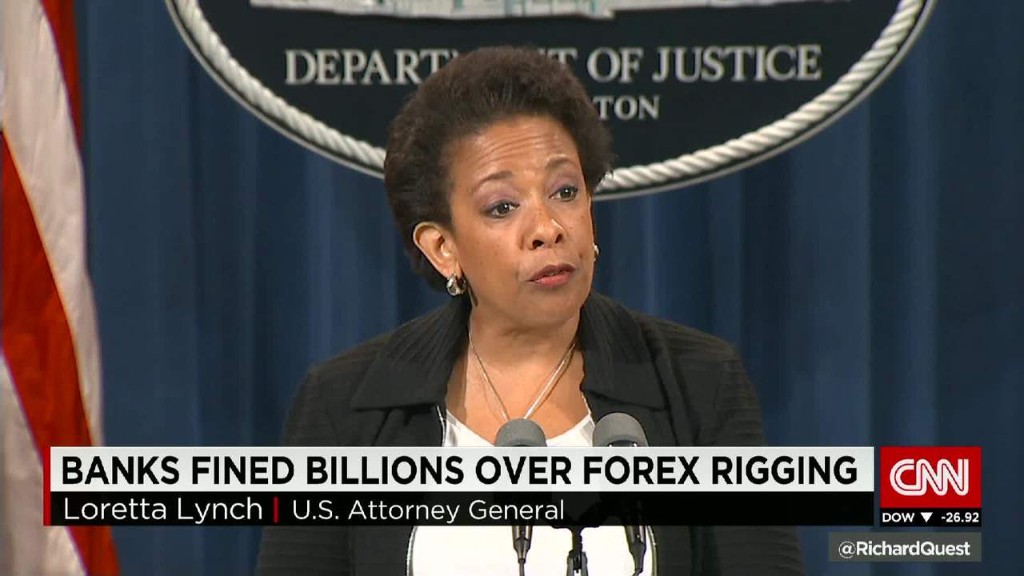
Remember the Libor scandal? Well it's coming back to haunt the Bank of England.
Bankers at Barclays (BCS) claimed they were pressured by the central bank to rig the benchmark interest rate during the global financial crisis, according to a recording of a conversation in 2008 published by the BBC on Monday.
Libor, which stands for London Interbank Offered Rate, is the rate at which banks lend to each other, and is used globally to price financial products, such as mortgages, worth hundreds of trillions of dollars.
In the recording, a man identified as Barclays executive Mark Dearlove can be heard ordering Peter Johnson, the Barclays employee responsible for helping to set Libor, to lower the rate.
"We've had some very serious pressure from the U.K. government and the Bank of England about pushing our Libors lower," Dearlove says in the recording.
Johnson responds, saying: "So I'll push them below a realistic level of where I think I can get money?"
Dearlove then confirms his instruction, according to the BBC.
"The fact of the matter is we've got the Bank of England, all sorts of people involved in the whole thing ... I am as reluctant as you are ... these guys have just turned around and said just do it," he says.
Related: Barclays CEO pay slashed after he tried to identify whistleblower
Libor was set by measuring the average cost of borrowing between banks -- using information they provided. But regulators have repeatedly shown that global lenders including Barclays successfully rigged the rate to benefit their own trading positions.
The Bank of England said in a statement that "Libor and other global benchmarks were not regulated in the U.K. or elsewhere during the period in question."
The central bank added that it has provided documents and records to the U.K.'s Serious Fraud Office, which prosecutes complex cases of fraud.
The BBC said the conversation between Dearlove and Johnson took place on Oct. 29, 2008, the same day that former Barclays CEO Bob Diamond spoke to former Bank of England official Paul Tucker. Tucker and Diamond were asked about the contents of the call during testimony before U.K. lawmakers in 2012.
Tucker denied putting any pressure on Barclays to influence its Libor submissions. Diamond denied knowledge of rate manipulation, but resigned as CEO amid the scandal.
The Serious Fraud Office said its investigation into rate rigging remains open.
Barclays declined to comment.
Barclays admitted to manipulating the Libor rate in 2012, paying more than $450 million as part of a settlement with U.S. and U.K. regulators. Other big banks have also paid hefty penalties for their role in the scandal.
Johnson pleaded guilty in October, 2014 to charges stemming from Libor rigging. Three other Barclays employees -- Jonathan Mathew, Jay Merchant and Alex Pabon -- were convicted by a jury in 2016 on Libor-related charges. All four were handed jail sentences.
Former UBS (UBS) and Citigroup (C) trader Tom Hayes was sentenced to 14 years in jail after being found guilty on eight counts of conspiracy to defraud between 2006 and 2010.
The BBC will air its full report on Monday's "Panorama" program.


